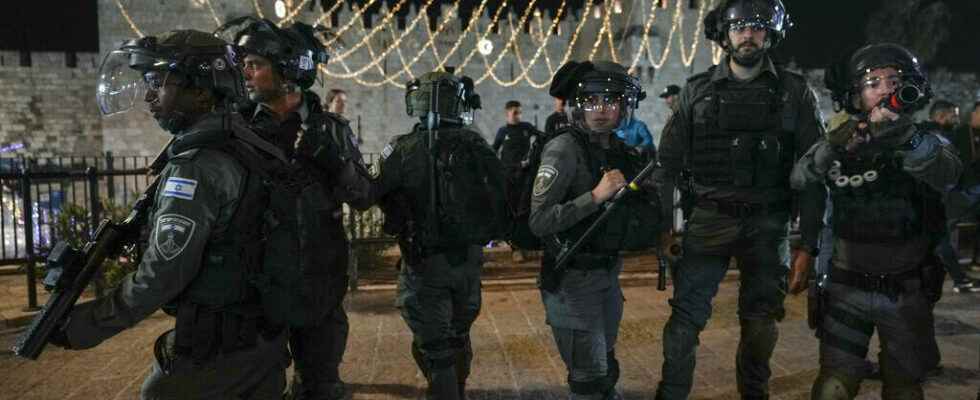Ramadan, the month of fasting, prayer and sharing for Muslims, began this Saturday, April 2. And in East Jerusalem or in the Palestinian Territories, it is the first Ramadan without the restrictions linked to the pandemic. But this year, the context is extremely tense, tensions are worsening in Jerusalem, bringing back bad memories of last year. Economic difficulties are also weighing on preparations for theiftar, due to the drastic price increase.
with our correspondent in the Palestinian Territories, Alice Froussard
It is a Ramadan like no other that begins this year for the Palestinians. In Jerusalem, there were still clashes. Sunday evening, near the Damascus Gate in Jerusalem, one of the gateways to the Old City and above all one of the main gathering centers during Ramadan, Israeli police arrested a dozen young Palestinians. In trying to disperse the crowd, the Israeli police also injured at least 19 people, using stun grenades, batons or rubber-coated steel bullets.
Again on Sunday, at the end of the afternoon, Yaïr Lapid, the head of Israeli diplomacy, went to this same district of Damascus Gate with the commissioner of the Israeli police and other officials and parliamentarians to ” support the hundreds of police officers deployed there “A strongly criticized visit, qualified” irresponsible by the Palestinian Authority, and ” provocation by Hamas. The King of Jordan, in a telephone interview with the Israeli Prime Minister, called for calm to avoid any escalation.
There are also videos circulating in the media and on social networks, where we see some young people being violently beaten to the ground by Israeli forces in civilian clothes. An Israeli officer was injured when a bottle was thrown in his face by a Palestinian, police said in a statement.
It should be remembered that the context is tense and although it is only the second night of Ramadan, the memory of last year when the clashes in East Jerusalem led to eleven days of war, is still vivid .
A festive atmosphere in the city despite the economic crisis
The alleys are, like every year, illuminated with multicolored garlands, lanterns, crescent moons, typical of Ramadan. Everyone is busy in town as theiftar, the meal for breaking the fast. There are sellers of traditional fruit juices or qatayefthese kinds of little Levantine pancakes stuffed with nuts, or cheese with orange blossom, pastries that sit on all the tables of Ramadan…
But despite the festivities, the economic crisis is felt. ” Here it only gets worse said Hasan, a Palestinian. Imported products are those that have increased the most, but the increase is also felt in basic necessities, meat, vegetables, or wheat: flour has undergone a 14% increase, frying oil went from 4 shekels per liter to 7 shekels, almost double.
There are also fears of a significant increase in the cost of fuel due to the links between the Palestinian market and the Israeli economy, which has also been hurt by the global pressure on energy prices. The main problem is that Palestinian wages have not kept pace with steep price increases, an additional burden on middle and low income families.
► Read also : West Bank: attacks between Palestinians and Israelis increase
